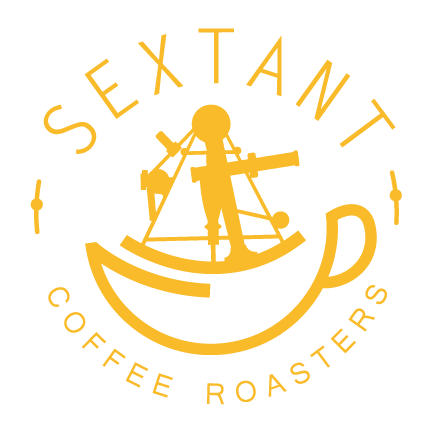2016 San Francisco Rising Star Roaster Kinani Ahmed of Sextant Coffee Roasters
2016 San Francisco Rising Star Roaster Kinani Ahmed of Sextant Coffee Roasters
May 2016
Sextant Coffee Roasters
1415 Folsom Street
San Francisco, CA 94103
www.sextantcoffee.com
Photos
Roaster/Owner Kinani Ahmed of Sextant Coffee Roasters - San Francisco, CA
Ethiopian Kinani Ahmed grew up watching his mother and grandmother performing the daily coff ee ritual—listening to the sound of pestle on mortar, incense fi lling the air, green beans roasting in cast iron pans, and thrice brewed coff ee poured from steaming clay kettles. As he observed and eventually participated in this routine, the cultural signifi cance of coff ee crystallized. After moving to the States as a pre-med student at the University of San Francisco, coff ee became a connection to home and eventually a passionate pursuit.
After graduating, Ahmed jumped directly into the fray in San Francisco, where he owned a coff ee shop for years and learned the ropes of the business. He was struck by roasters’ level of control, as opposed to the pan roasting he grew up with, and began studying roasting in earnest. From attending coff ee events around town, he realized there were no Ethiopian roasters, which further emboldened him.
Sextant opened in 2014 with an L12 Probat that Ahmed upgraded to the larger UG22 in 2016 (they’re both running side by side in the roastery toward the back of the café). Sextant sources globally but focuses on direct-sourced Ethiopian coff ees with Ahmed leveraging family connections and deep friendships to bring brilliant beans to San Francisco. With ambition to expand in the Bay Area and eventually to Addis Ababa, he’s blending his cultural coff ee inheritance with modern techniques and tastes.
Interview with San Francisco Rising Star Kinani Ahmed of Sextant Coffee
Sean Kenniff: Where did you grow up?
Kinani Ahmed: I was born and rasied in Ethiopia. I have famlily that have coffee farms. Coffee is consumed differently over there. It’s a ritual every morning: roasting the beans in pans, grinding in a spice mill, brewing in a kettle made of clay. I grew up watching my mom and grandmother doing the ritual every morning, and participating. The coffee is brewed three times; by the third time it's really diluted. It's a way to start the day, like an extended breakfast or brunch.
SK: How did you get into the coffee business?
KA: I owned a coffee shop [in San Francisco] for nine years. Before that I did pre-med at UCSF, but I wanted to do my own thing. So, I got into the coffee business. I found out through going to events that there are no Ethiopian roasters. Eventually, my goal is to have a roasting operation and cafe in Ethiopia as well.
SK: What is your signature espresso blend?
KA: The Maiden Voyage blend is equal parts washed Yirgacheffe Dumerso and natural Sidama Hantate.
SK: How would you describe your roasting profile?
KA: I don’t do dark. I do a happy medium and sometimes a little lighter, depending on what customers want. Sometimes we do cupping sessions with customers. I'll just announce a new roast in hosue and get direct feedback. If it’s too dark, you’re destroying the coffee. Too light, the coffee tastes like grass.
SK: What are the biggest challenges your company faces?
KA: When you are a small business owner, doing so many things—human resources, roasting, baristas, accounting—everything is a challenge. I'm wearing so many hats and training a staff of eight. I'm training two roasters right now. They're are passionate guys and want to know everything. One has been a barista for eight years and has been training for a couple months now.
SK: What's your production level, currently?:
KA: We would like to do 5 to 6,000 pounds a week. Right now we're not close, but we're getting there.
SK: What is your five year plan?
KA: I want to have another Sextant location all set up and be one of the major players in the region and internationally, in Ethiopia. I should be there in about two and a half years. I already have a machine in Germany being re-done that will go to Addis Ababa. I was there a month ago, and my famliy loves this [Sextant] coffee. Coffee is cherished in Ethiopia. People would be blown awawy by this coffee because the process is so controlled, it's roasted to the optimal profile. In Ethiopia, you're roasting on an open metal skillet and you're not going to get an even roast. They also tend to go a little darker. The extraction on this coffee is going to so different for them because they're used to brewing coffee directly in water and with a much finer—it's almost like Turkish coffee.
Addis Ababa is very much like any big city in the world, with really high quality restaurants and cafes—they're booming everywhere. The Italian influence of coffee shops and espresso machines ... That cultrue has been there a long time and we need to transform it and add to it with specialty coffee culutre.
SK: What are the advantages to roasting in Ethiopia?
KA: The Ethiopian diaspora going back and doing something is very well received. It will be crop to cup—that’s what needs to be done. Having the coffee in your backyard, you don’t have to worry about elevation or moisture from the sea. It’s all right there, and so fresh. You can do so much more with the bean.
2016 STARCHEFS SAN FRANCISCO RISING STARROASTER


